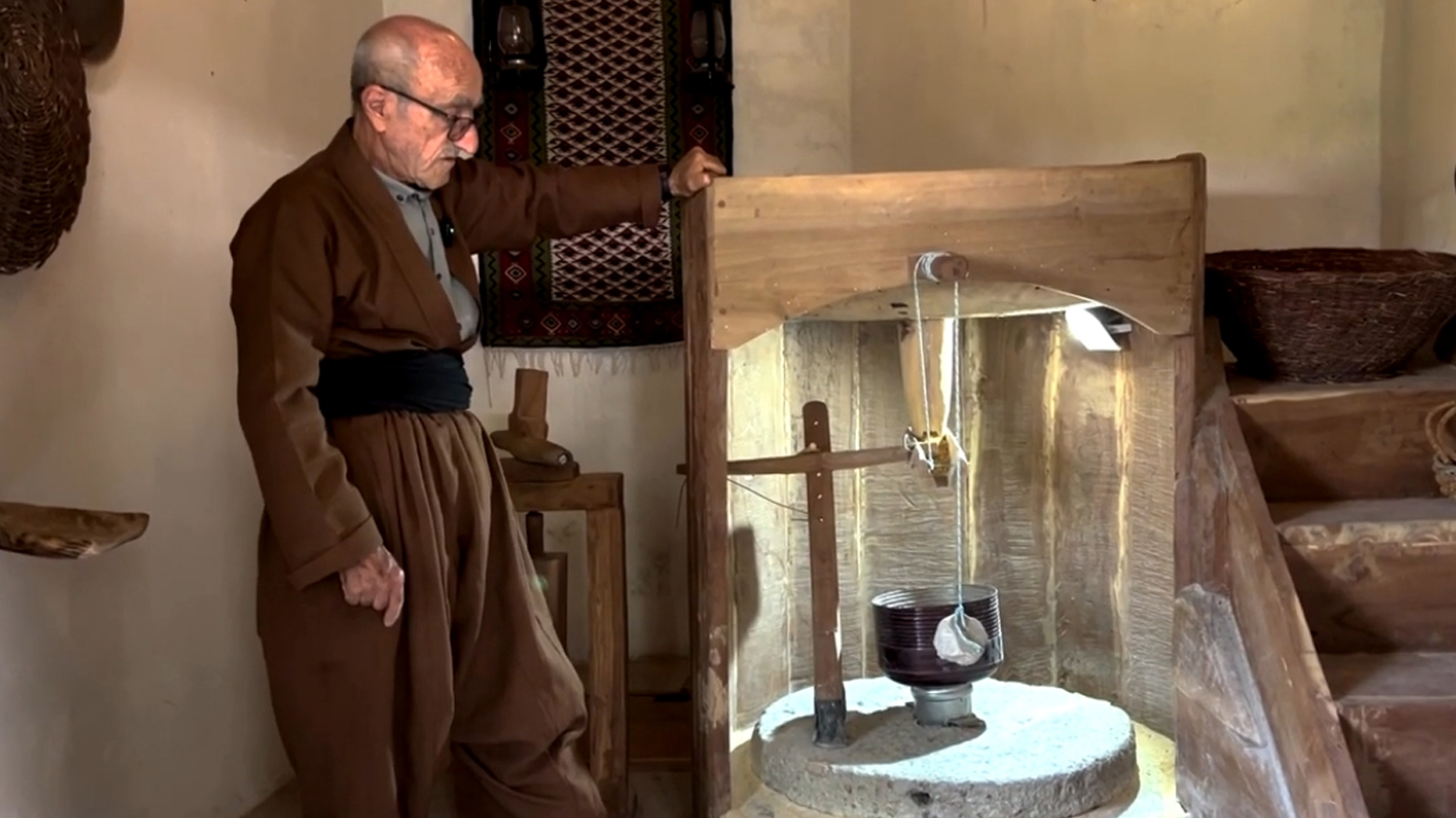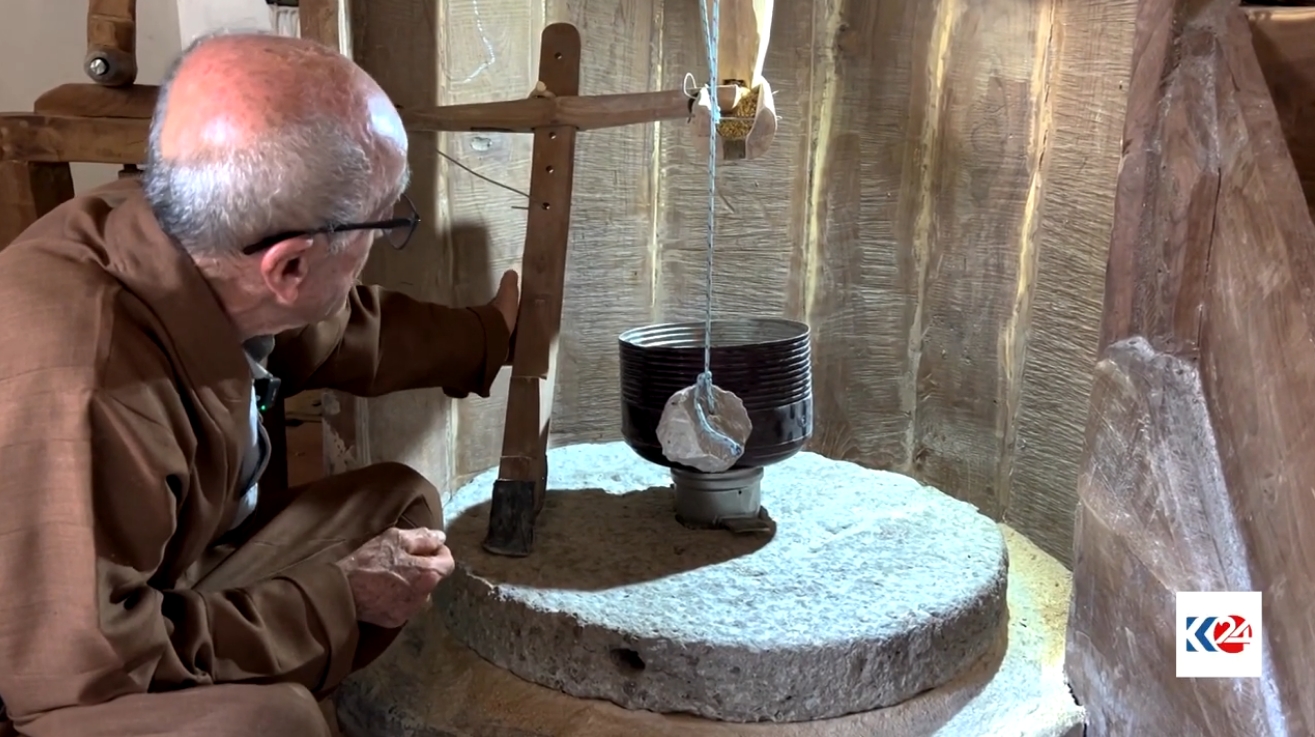Traditional Water Mill in Hawraman: A Living Legacy of Kurdistan's Sustainable Heritage
Kurdistan's living heritage: Sirjat village preserves 72-year-old water mill, grinding grain with nature's power. This eco-engineered marvel - using hollow logs & vibrating 'shaqshaqa' - embodies Kurdish sustainable traditions amid modernity.

ERBIL (Kurdistan24) – Tucked within the rolling foothills of the Shahrizor plains lies the Kurdish village of Sirjat, where a traditional water mill continues to defy the passage of time. In the heart of Hawraman, Kurdistan region, this centuries-old mechanism still grinds grain with the same vigor as it did generations ago, embodying both historical resilience and sustainable engineering.
At the helm of this enduring legacy stands Zain al-Din Sahib Muhammad, a native of Sirjat and custodian of the village’s historic water mill. With unwavering dedication, he has preserved the craft and function of this structure, passed down faithfully through his family’s lineage.
A mechanism sustained by water and time

Believed to be over 72 years old, the mill is one of the village’s oldest landmarks. It operates entirely on the power of flowing water—a method traditionally embraced across the region for grinding wheat and other grains.
The water is directed from its natural source through a hollowed tree trunk or a custom-made barrel structure. It flows into a narrow pipe, where its concentrated force strikes a wooden wheel locally known as the barwana, positioned beneath the mill’s base.
This wheel transfers kinetic energy to the upper millstone, initiating the grinding process. Grains stored in a conical upper container are released gradually between the two stones. An ingenious vibrating mechanism, known locally as the shaqshaqa, regulates the flow of the grain, ensuring it is ground evenly into fine flour.
The miller, relying on both inherited skill and mechanical intuition, can control the coarseness of the flour by adjusting the height of the upper millstone. This flexibility allows him to produce different textures of flour according to local demand and household needs.
Far more than a relic, this traditional mill is a beacon of environmentally friendly engineering. It operates without electricity or fuel, relying entirely on hydropower—showcasing a self-sufficient model of rural innovation.
As Kurdistan advances into modernity, this water mill in Sirjat serves as a reminder of the region’s deep-rooted connection to nature, craftsmanship, and cultural continuity—where each grain ground carries the weight of history and the wisdom of the land.